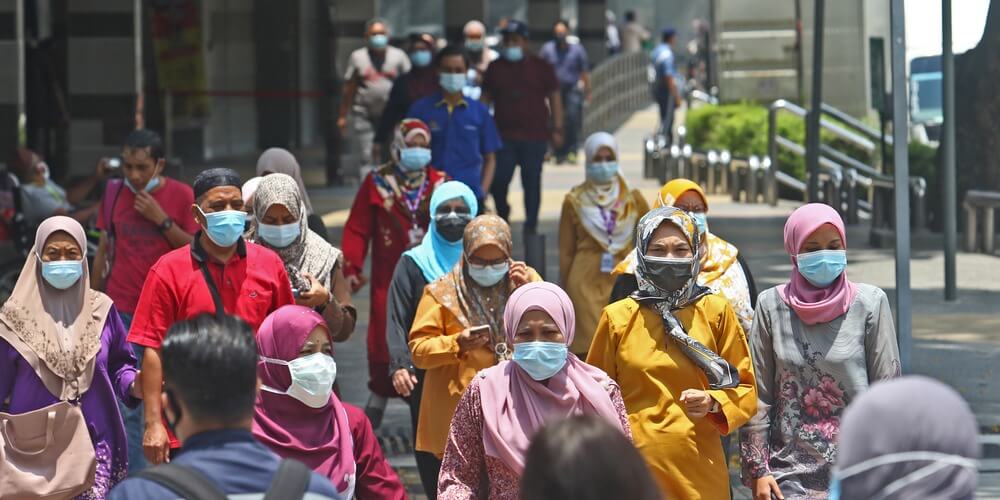Mental health coverage rising among Malaysia’s Islamic insurers
KUALA LUMPUR - Mental health conditions have long been sidelined by Malaysia’s Islamic insurers even as one in three adult Malaysians have issues such as anxiety and depression.
This is slowly changing, with Prudential BSN being the latest takaful operator to include comprehensive mental health coverage among the benefits of a new plan for women, following on the heels of AIA Takaful and Etiqa.
Launched in June, Prudential BSN’s new certificate covers major depressive disorder, postpartum depression, generalised anxiety disorder, obsessive compulsive disorder, bipolar disorder and schizophrenia.
It is part of a protection plan for women that also covers women’s illnesses and has riders available for fertility treatment and to protect against pregnancy complications and congenital illnesses after childbirth.
Prudential BSN told Salaam Gateway in a statement that it took them until this year to introduce mental health coverage because “while mental health has been recognised, it is still relatively new in Malaysia and data on it were not comprehensive.”
“We had planned to introduce coverage related to mental health for a while, and launching it during this pandemic has proven to be timely with the current pandemic which has increased the awareness on mental health,” said the insurer.
The takaful operator chose to include mental health in a plan for women after identifying from health statistics that mental health conditions are more common in Malaysian adult women, and to reflect additional pressure on women placed on women during the pandemic. One recent research showed a higher prevalence of depressive, anxiety, and stress symptoms in women compared to men.
The company also revealed that it would consider issuing a certificate to cover mental health in the future that will not be based on gender.
Earlier this year, Etiqa Family Takaful released a critical illness plan covering 68 illnesses including mental health conditions. This followed the introduction of a rider with mental illness coverage last year that saw 20% increased demand within a month, according to chief executive Zafri Ab Halim.
It was AIA that first started takaful mental health coverage with a policy covering psychotherapy treatment of anxiety and depression for women in 2019. It has since introduced a new plan that enables claims for psychiatric consultation fees for the whole family.
“Often, one of the first barriers in the journey to mental health recovery is seeking treatment, so … we hope to enable more Malaysians to take that first step to seek professional help,” AIA told Salaam Gateway in a statement.
LONG OVERDUE
Mental health coverage by takaful operators is long overdue, according to one Islamic finance academic.
Singling out the “dire situation of mental health takaful”, Khairil Faizal Khairi, an associate professor of Islamic banking and finance at Universiti Sains Islam Malaysia, believes it could potentially “fulfil the purposes of maslahah, which is the protection of religion, life, intellect, progeny and property”. In particular, it could come to the assistance of the low-income groups that are at most risk of mental health issues.
“Takaful operators need to seriously consider offering new products on the market, and ones that cater to M40 and T20 groups,” Dr. Khairil Faizal told Salaam Gateway, referring to the 40% of the Malaysian population who are middle-income-earners and the 20% who are in the low income category.
“The number of patients has increased significantly, and I believe it has become more serious during the COVID-19 pandemic,” said the associate professor.
In a study carried out during the peak of Malaysia’s first wave of pandemic last year, rates of depression and stress were found to have almost tripled between May and September 2020, and instances of anxiety increased from 32% of the population to 55%.
Mental health issues were already rising pre-pandemic. According to the ministry of health, mental health conditions shot up from affecting 10.6% of adults in 1996 to 29.2% in 2015, placing them behind only heart disease for prevalence in Malaysia.
It also reported that women, younger adults, bumiputra—a demographic category referring mostly to Muslim Malays—and adults from low income families seem to suffer from mental health problems more commonly.
Dr. Khairil Faizal believes there is plenty of room for improvement in takaful’s approach to mental health coverage and says the main reason why it has taken so long for mental health conditions to appear in takaful certificates is the expensive cost of treatment, which can be ongoing for years.
In addition to urging more takaful operators to introduce mental health provisions, he has called on the government to “allocate funding for a group comprising academics, Shariah authorities, takaful operators and government departments to develop a hybrid takaful model for mental health disorders with a waqf component to cater for M40 and T20 groups.”
Such a hybrid model would involve a profit sharing contract, agency and waqf contract, and the takaful operator would serve as fund manager and receive an agent’s fee from participants.
At the same time, the government, public and private sector investors and doctors could contribute funds and expertise under a waqf concept, which would be surpervised by Islamic authorities.
Since the high cost of treatment has put off many takaful operators from covering mental health conditions, this approach would spread out the cost and distribute profits among investors.
Dr. Khairil Faizal believes there is a real need for a “more comprehensive outlook of mental health services”, especially for takaful.
“Mental health takaful is necessary under Shariah law. Without it, deteriorating mental health would cause a Muslim to be unable to perform ibadah satisfactorily or make unsound decisions that might affect their wealth or property ownership.”
© SalaamGateway.com 2021 All Rights Reserved
